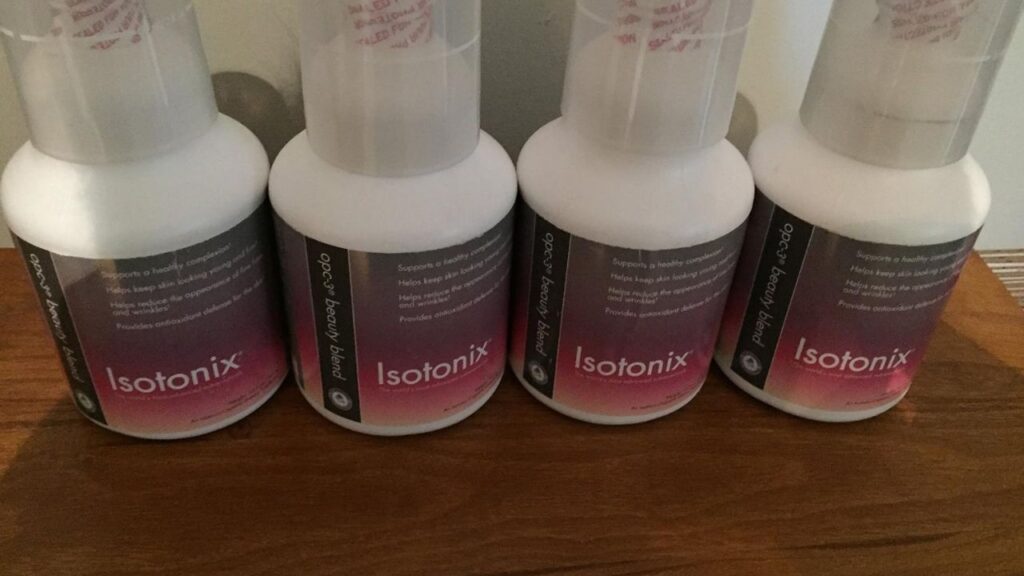The Isotonix Lawsuit trial has garnered national attention for the company, Market America (now shop.com), behind the popular Isotonics Diet Supplement. Filed as a proposed class action, the case accuses false advertising, unknown health risks, and product liability related to high-strength formulas. Already, with the FDA having issued a warning against some isotonic products, the lawsuit raises important questions about security, marketing morals, and corporate responsibility. In this article, we aim to provide an overview of the Isotonix trial.
What is the Isotonix Lawsuit?
The Isotonix lawsuit is a proposed class action filed against Market America, Inc. (now operating as SHOP.COM), the company that manufactures and markets Isotonix dietary supplements. According to the plaintiffs, these powdered and capsule supplements were deceptively marketed with false health claims while allegedly causing serious health risks.
Key Allegations in the Isotonix Lawsuit
- False Advertising: Marketing Isotonix products with drug-like claims such as “lowers cholesterol” and “treats arthritis” without proper FDA approval.
- Failure to Warn: Not disclosing potential side effects, including liver toxicity and heart complications.
- Product Liability: The use of potentially harmful ingredients in high doses raises safety concerns.
In 2020, the FDA issued a Warning Letter to Market America over unlawful claims made for Isotonix OPC-3, Multivitamin, and other products. This regulatory action further supported consumer lawsuits, adding credibility to the allegations of deceptive marketing and unsafe formulations.
Rise of Isotonix
Given the significant increase in Isotonix, this is an interesting story. The brand actually gained popularity in the early 2000s when more people became interested in health supplements. In fact, everyone’s attention was drawn, and their unique selling point was the isotonic solution distribution system. Imagine drinking a sports drink that will work better than swallowing pills. This is why people were excited.
The company created a strong network of distributors (they call them “impassable business owners”) who helped them spread the word about their products. Through social media and word of mouth, these distributors shared stories and products with personal success. In 2010, Isotonics had become a well-known name in the additional industry, where it reported sales reached a significant number through its MLM structure.
Isotonix Products

Isotonics is a brand of supplements owned by a company in the United States, created in 1992. Market America’s model is based on independent distributors who sell nutritional supplements, personal care products, and household items. Isotonics became a flagship line, promoted for its rapid absorption due to its isotonic formulation. Over time, the charges questioned both the effectiveness of the products and the commercial morality in the market’s distribution model, which gave rise to the isotonics test.
Reported Side Effects and Health Risks
Isotonic’s suit highlights serious health problems that the plaintiff raises, claiming that the high ability of isotonic has side effects. These cases suggest that unreported component interactions and excessive doses have contributed to harmful side effects. While the reactions vary individually, the lawsuits often cite the complications that have been reported.
Documentation of health complications in isotonics experiments
- Liver damage: Symptoms such as elevated liver enzymes, hepatitis, and acute liver damage.
- Heart problems: irregular heartbeat, high blood pressure, and chest pain.
- Neurological symptoms: chronic migraine, dizziness, trembling, and frequent headaches.
- Gastrointestinal crisis: severe nausea, bleeding, stomach ulcers, and pancreatitis.
What experts say
Medical experts involved in the Isotonics study suggest that these risks can be linked to the Mega-khurak antioxidants such as Resotonics OPC-3, as well as excessively high vitamin B12 levels exceeding 5000% of the daily recommended dose per serving.
Isotonix Lawsuit: What Happened?
Upon examining how this case arose, it began with numerous complaints submitted in various states. The main trial was held in federal court, where many consumers and former distributors joined forces to present their claims. He expressed concern about several big questions. First, there were questions about marketing requirements for the absorption rate of isotonic products.
The company claims that its supplementary diet can be absorbed by the body 90% faster than traditional pills. The plaintiff contended that these claims have not been supported by sufficient scientific evidence. Another significant case involved the promised revenue capacity for distributors. Some people reported investing considerable money in warehouses and training materials, but it is tough to make just profits, as they had believed.
The Impact on Consumer Supplement Industry
Isotonics serves as a stark reminder of the need for greater openness and accountability in the supplement industry. The outcome of the case is likely to influence how other supplement companies approach marketing and product requirements. A vital ruling can set an example, which may lead to strict regulations and increased scrutiny of marketing materials.
For consumers, the lawsuit highlights the importance of careful consideration when selecting supplements. It is essential to look beyond marketing propaganda and rely on reliable scientific evidence to evaluate the product’s benefits. Reading independent reviews, consulting with healthcare professionals, and verifying information from third-party sources can help you make informed decisions.
Public Opinion
Public opinions on the isotonic test vary. Some consumers remain loyal and report satisfaction with product results. Other people feel misled by exaggerated marketing claims and have expressed their disappointment on social media and forums. These opposing approaches influence general beliefs and underscore the importance of transparent communication.
Financial Impact on Market America
The ongoing Isotonics case could yield significant financial benefits for the United States (shop.com). In addition to potential legal repercussions, the company is facing reputational damage, loss of distributorships, and risks stemming from the erosion of customer confidence. Although hefty fines are avoided, negative publicity alone can significantly impact the sale and development for an extended period.
Key Financial Risks Linked to the Isotonix Lawsuit
- High legal fees: Increased lawyer fees and legal costs can strain the company’s resources.
- Reputation damage: Negative press can deter new distributor recruitment and erode the brand’s reliability.
- Customer Hesitation: to avoid isotonic products due to security concerns, which can lead to lower sales.
These economic risks underscore the importance of moral trade practices and genuine marketing requirements in protecting both the company’s financial interests and consumer confidence.
Conclusion
The Isotonix lawsuit represents more than just a legal struggle – it highlights the importance of transparency, scientific evidence, and the urgent need for ethical trade practices in the industry. While loyal consumers can continue to support isotonic products, health risks cannot be ignored, and this raises concerns about misleading claims. The result of this case can serve as a strong example and influence how complementary companies market their products and how consumers make health decisions.
For more latest news: usamagazine123.com
FAQs
What is the Isotonix lawsuit about?
The lawsuit alleges that Market America (SHOP.COM) engaged in false advertising, failed to disclose health risks, and sold Isotonix supplements with unsafe ingredient levels.
What side effects are linked to Isotonix products?
Reported side effects include liver damage, heart complications, neurological issues like migraines and tremors, and gastrointestinal distress.
Did the FDA take action against Isotonix?
Yes. In 2020, the FDA issued a Warning Letter to Market America for making unlawful health claims about Isotonix OPC-3, Multivitamin, and other supplements.
How does the lawsuit affect Market America financially?
The case could result in high legal costs, reputational damage, reduced distributor recruitment, and lower product sales due to consumer hesitation.
What does this mean for the supplement industry?
The lawsuit may lead to stricter regulations and increased scrutiny of supplement companies to ensure transparency, accurate marketing, and consumer safety.


